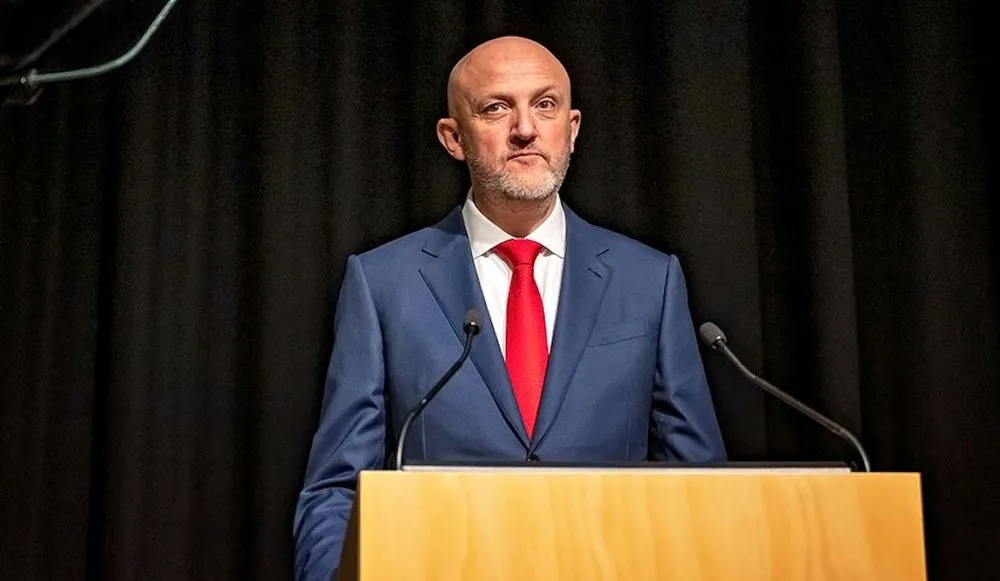Multiple foreign intelligence agencies plotting to murder dissidents in Australia, warns security chief
Mike Burgess, the head of the domestic-focused Australian Security Intelligence Organisation (ASIO), revealed on Wednesday that multiple foreign states had unsuccessfully attempted to murder dissidents living in the country.
In the Director-General’s Annual Threat Assessment, Burgess said: “ASIO investigations have identified at least three different countries plotting to physically harm people living in Australia. In a small number of cases, we held grave fears for the life of the person being targeted.”
In one of these operations, “a foreign intelligence service wanted to silence an Australia-based human rights activist. The scheme involved tricking the unsuspecting activist into visiting a third country, where the plotters would be waiting. They planned to arrange an ‘accident’ that was anything but accidental, with the objective of seriously injuring or even killing the activist,” said Burgess.
ASIO was able to intervene and prevent the target from travelling to the third country, said Burgess. The foreign state was not identified, but the methodology was previously deployed by Iran’s Islamic Revolutionary Guards Corps to capture and eventually execute Ruhollah Zam.
In another case, ASIO agency’s intelligence “indicated a different hostile foreign intelligence service wanted to harm and possibly kill one or more individuals on Australian soil” which the agency — alongside international partners — discovered “was part of a broader effort by the regime to eliminate critics of the foreign government around the world – activists, journalists, ordinary citizens.”
Numerous governments have been accused of targeting foreign-based critics. In the United States, the FBI describes these activities as “transnational repression” with numerous examples identifying China and Iran as the most common culprits.
Election integrity
Burgess spoke ahead of Australia’s federal election expected to be held in May, when the country will vote for all 150 seats in the House of Representatives, with the party holding a majority being able to form a government.
“I am acutely aware that this year’s federal election will be held in a security environment characterised by eroded trust in institutions, mis- and dis-information, incidents of politically motivated violence and attempts at foreign interference,” said Burgess.
“Ensuring our elections remain free, fair and peaceful is business as usual for ASIO. We have already established specialist teams and operations to work with the Electoral Commission and other partners to protect the integrity of the poll.
“We will be watching. If a foreign regime tries to meddle in the election by pressuring diaspora groups, directing foreign language newspapers, spreading disinformation on social media or using any of the other tactics sometimes seen overseas, we will know. And we will act,” added the ASIO chief.
Beware █████ bearing gifts
The ASIO chief also warned that Australia was already facing “extreme levels” of “espionage and foreign interference” which anticipated “will only intensify.”
Alongside the agency’s work to safeguard the Australian elections, Burgess stressed the “same goes for AUKUS,” the trilateral military partnership between Australia, the United Kingdom, and the United States which is perceived to be driven by the regional threat posed by China.
“My message to any foreign intelligence service targeting AUKUS is simple: where we see you attempting to conduct clandestine intelligence operations — and we will see you — you will be dealt with,” said Burgess.
He revealed that the country’s defence personnel were “being targeted in person and online,” and noted: “Some were recently given gifts by international counterparts. The presents contained concealed surveillance devices.”
The espionage threat was stressed in Burgess’ last annual threat assessment, when he warned “more Australians are “being targeted for espionage and foreign interference than ever before.”
‘Most important community capability’
Burgess also used his annual speech to praise the “most important community capability” which he said was “something we rarely discuss in public.”
“Throughout the long and storied history of the intelligence profession, human sources have been central to our success. This has been true in every era and location in which governments have sought to protect their domains and people against the threats that challenge them. Human intelligence – ‘HUMINT’ – remains as critical to ASIO’s mission now as it was in the Cold War.”
Against the backdrop of the new threats and opportunities posed by technology, “HUMINT provides a constant and consistent way to understand and stay ahead of our adversaries,”’ said Burgess.
“A well-placed, well-motivated, and well-supported human source can collect information broadly, or very precisely; they ask questions, draw inferences, and prioritise; they operate with technology to create new opportunities and to defeat or bypass technological barriers; and they can change the operating environment and adversaries’ behaviour to reduce the threats Australia faces.
“A human source might work with ASIO for a short time, for years, or decades. They are not rendered obsolete by a security patch or a new operating system. They adapt. But they are human. They have emotions, families, they have other careers. Their ASIO role is part of their life – often a big part – but only a part; and a secret part, at that,” he added.
To celebrate “the contributions and sacrifices of these brave individuals” ASIO would be “installing a permanent plaque here in the Ben Chifley Building,” said Burgess, referring to the agency’s headquarters — described by ABC as “an imposing structure overlooking Canberra's Lake Burley Griffin and the nation's Parliament.”
Alexander Martin
is the UK Editor for Recorded Future News. He was previously a technology reporter for Sky News and a fellow at the European Cyber Conflict Research Initiative, now Virtual Routes. He can be reached securely using Signal on: AlexanderMartin.79



